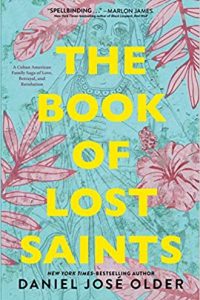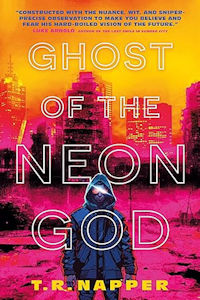Russell Letson reviews C.J. Cherryh
Visitor, C.J. Cherryh (DAW 978-0-7564-0910-4, $26.00, 376pp, hc) April 2016. Cover by Todd Lockwood.
 Visitor is the 17th entry in C.J. Cherryh’s long-running (since 1994) Foreigner Universe series and the middle volume of its sixth sub-trilogy. That means, right up front, that this is not the place to start with these novels, though one might not need to back up all the way to the first book to get oriented. The crucial elements of Visitor are rooted in events in the fifth volume, Explorer (2002), during which the precariously balanced alliance of lost humans and their host species, the atevi, encounter a third spacegoing species, the maybe-warlike kyo, and establish a fragile and partial détente, with a promise of a follow-up meeting in the atevi home system. That story-line was suspended by nine novels’ worth of civil war, restoration, and aftermath (volumes 7-9); post-war intrigues and cleanup (volumes 10-12); and dynastic-familial matters in the atevi ruling household (volumes 13-15). Finally, in last year’s Tracker (reviewed in April 2015), that long-delayed other shoe dropped, as an inbound kyo starship signals that it is arriving and that the long-awaited, one-hopes-diplomatic mission is on its way.
Visitor is the 17th entry in C.J. Cherryh’s long-running (since 1994) Foreigner Universe series and the middle volume of its sixth sub-trilogy. That means, right up front, that this is not the place to start with these novels, though one might not need to back up all the way to the first book to get oriented. The crucial elements of Visitor are rooted in events in the fifth volume, Explorer (2002), during which the precariously balanced alliance of lost humans and their host species, the atevi, encounter a third spacegoing species, the maybe-warlike kyo, and establish a fragile and partial détente, with a promise of a follow-up meeting in the atevi home system. That story-line was suspended by nine novels’ worth of civil war, restoration, and aftermath (volumes 7-9); post-war intrigues and cleanup (volumes 10-12); and dynastic-familial matters in the atevi ruling household (volumes 13-15). Finally, in last year’s Tracker (reviewed in April 2015), that long-delayed other shoe dropped, as an inbound kyo starship signals that it is arriving and that the long-awaited, one-hopes-diplomatic mission is on its way.
This is not the place for a full-fledged orientation lecture on how the human colonists on the lost starship Phoenix managed to make a new home and forge a delicate alliance with the atevi, a species that is physically humanlike but psychologically very different – better to Google up some background or (better yet) pick up one of the earlier sub-trilogies and dive in. For those who are up to date, or who need a nudge to re-enter this world, here are some teasers, carefully crafted to avoid spoilers. The rest of you can eavesdrop before going in search of the rest of the books.
Visitor is necessarily much occupied with backward looks at events whose outcomes are finally showing up as live crises, and the first half of the book is dominated by a review and elaboration of the problems and puzzles introduced back in Explorer. Bren Cameron, originally the ‘‘paidhi,’’ the sole official translator-diplomat-bureaucrat tasked with keeping humans and their atevi hosts from disastrous misunderstandings, is now also the atevi government’s primary authority in space, ‘‘lord of the heavens.’’ This at first meant authority over the human-built, jointly operated space station, but the job has come to include plenipotentiary power to deal with the mysterious and powerful kyo. Cameron also has to deal with three human factions: the 200-year-old human settlement on the ‘‘earth of the atevi’’ (for whom he is still an official); the crew and command hierarchy of the Phoenix; and a crowd of refugees from Reunion, a second, remote human station that was attacked and then left alone by the kyo.
Cameron puzzles over the behavior of present and former Phoenix captains, station administrators, and the kyo, who may have been observing human and atevi activities for longer than anyone thought. On the human side, critical information has been lost, destroyed, or concealed. Most crucially, with whom are the kyo at war? What else lurks out among the stars where the atevi have not gone? Such questions give Bren literal nightmares – and when he does get some answers, the stakes are raised very high indeed.
Once Cameron and the kyo get down to brass tacks, the book is absolutely riveting, even as it replays many of the situations and tensions from the series’ earliest volumes, when Cameron was feeling his way through the darkened rooms and passages of human-atevi worldviews and instinct-sets. And along the way, even before those fraught cross-species negotiations begin, the book offers subsidiary currents and small flashes of illumination that light up new corners of this world. There is, for example, a memory of Cameron’s first meeting with the young atevi aiji (overlord) Tabini and the roots of his approach to the job of paidhi, in the context of current anxieties about dealing with the kyo. Or the moment when the young atevi heir Cajeiri notices that one of his human associates is willing to abandon all her belongings and start afresh without a backward look, even in an alien environment, while he knows the provenance and history of ‘‘every piece of furniture, every carpet, every ornament in his own suite at home… [which] had been owned… by people a hundred years ago.’’ Cajeiri’s great-grandmother, the formidable dowager Ilisidi, provides some surprising (for the people inside the story) decisions and declarations that suggest a degree of sophistication and cross-species insight even greater than one has come to expect from her. These recognitions and insights and even the bad dreams feed into a resolution that feels quite solid – except for that inconvenient fact that this is the middle of a triad, and atevi numerology probably has something to say about the nature of 17.
It has been especially interesting and illuminating to read this Foreigner volume next to Arnason’s hwarhath stories. Both writers address matters of ‘‘inherent’’ components of social behavior, the neurological-wiring side of ‘‘nature.’’ But where Arnason builds her exploration of nature and nurture from the family and sexuality upward and outward, Cherryh builds our understanding of the atevi from the dynastic and large-scale-social downward toward the personal. (We still don’t know exactly what goes on between Cameron and his bodyguard/lover Jago, let alone how her emotional attachment maps onto his.) And while living inside Bren Cameron’s head is often a cerebral experience where the strongest emotion is a kind of perfectionist anxiety, this volume offers surprisingly moving moments. Even hinting at where they occur would spoil some of the pleasures of Visitor, which pays off in a most satisfactory manner.






I can’t think of another writer who could sustain a narrative over 17 volumes and, so far, 22 years. Our knowledge of these characters and the various human and Atevi societies only deepens with each book.
Well, Patrick O’Brian. . . .